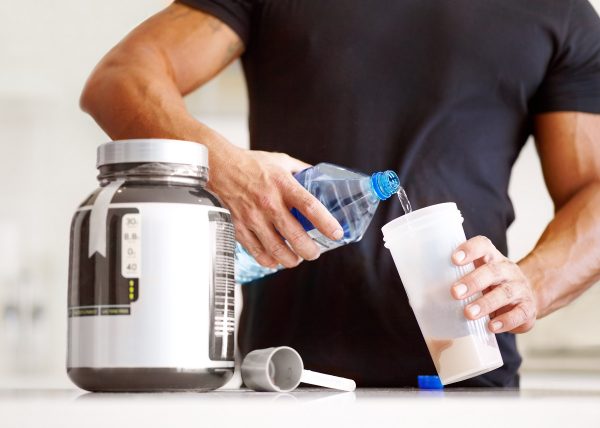As long as you are ready to suffer the consequences, you can work yourself to death in the gym. Unfortunately, downtime for the burning muscles and disarming fatigue is a luxury a lot of people simply cannot afford in their overstuffed schedules and business obligations. After all, even if you are a dedicated fitness enthusiast that works out every day, you spend at least 90% of your time outside the gym. If you easily get inflammation from your gym sessions, here are 6 ways to maximize your post-workout recovery.
1. Stretch after a workout

Stretching after a workout is by far one of the most important routines that can reduce the effects of muscle inflammation. Furthermore, it’s an activity that has far-reaching benefits for the development of muscle mass and the flexibility of your entire body. Surprisingly, many gym-goers consider stretching something they can casually skip. However, when you allot the effects to one corner – increased muscle pliability, quality growth, lessened pressure on the ankles and joints – the importance of practicing stretching for at least 20 minutes after a workout becomes apparent.
2. Pre-workout nutrition
People tend to underestimate the importance of pre-workout nutrition because they are taught that, above all else, what you eat after a workout builds into your muscles. However, when it comes to recovery and treatment of muscle micro-tears, what you eat before the workout can be equally as impactful as what you eat afterwards.
Depending on the general state of your metabolism, ingesting complex foods like proteins and carbohydrates before exercising can actually be a better strategy than eating them afterwards. When it comes to protein and carbs, your body will digest them for a long time and they will circulate through your body even after you have finished your routine. However, timing it right is important. If you eat lean protein and complex carbohydrates just before you go to the gym, you are guaranteed to get extremely groggy in the middle of exercising. The best time frame for quality pre-workout nutrition is to have a meal at least two hours before the gym session.
3. Post-workout protein intake

Cropped image of a bodybuilder making himself a protein shake
If you want to intercept any sort of serious after-workout muscle tearing, protein is your best bet. It is a holy grail of post-workout nourishment. In order to get just the right amount of protein combined with other complex foods, most people rely on medically tested supplements. Protein shakes are true elixirs for devoted fitness enthusiasts, and mixing them up with other groceries in a reliable food processor such as Kitchen Aid will produce the exact tasty blend you hoped for. (Here’s a hint – potassium is a potent ingredient for your recovery elixir.) This way, you can easily chug it down and expect your inflammation to be minimized.
4. Active recovery

You have probably heard this one before – mild physical activity after exercise can actually help with muscle recovery and reduce inflammation. Even if you feel you have earned your rest after the intense workout, riding your bike home instead of driving or going to the store and walking a few circles around the block can actually be really helpful. Such mild cardio and light activities combined with stretching will surely accumulate to noticeably diminished muscle pain.
5. Quality rest and sleep

At the end of the day, quality rest and sleep will be all that your body needs. At least six hours of sleep (eight being an ideal goal) is a must for regular gym-goers, especially the ones who like to push their physical limits every time they enter the workout “zone”. As your consciousness shuts down and you go into the apparent idle mode, your body actually stays very busy. As the blood courses through your veins, the nutrients, antibodies, and reparation mechanisms are in full swing. This is when your body restores itself the most and for some people, eight hours might not be nearly enough. In fact, it is not uncommon for athletes to sleep nine hours a day to achieve the peak physical condition and reduce any chance of long-term inflammation.
6. Work on your stress levels
Stress is a killer. Feeling anxiety has a detrimental impact on your being across every conceivable dimension of life. As it has been mentioned above, sleeping less than six hours a night when you are going to the gym and working every day can increase your stress levels chronically over time. In addition, not being able to achieve your goals, both physical and work related, as well as drawn out family issues – these are all factors that can add up to an explosive mix.
If you want to speed up your post-workout recovery, you need to work on the overall state of your mind. Stretching and mild post-workout activities are a good chance for some Zen thinking and a bit of informal meditation. When your stress levels are down, your body will bounce back from any post-workout damage significantly faster.
If you want to get the best results after your workout sessions, you really need to prioritize your post-workout recovery routine. After all, the process of muscle growth begins as soon as you wrap up your gym activities. This means that the way you behave after you exit the facility actually has a major impact on the way your body will develop. Therefore, utilizing every conceivable strategy for your post-workout recovery is the safest road to achieving your fitness goals.









Leave a Reply